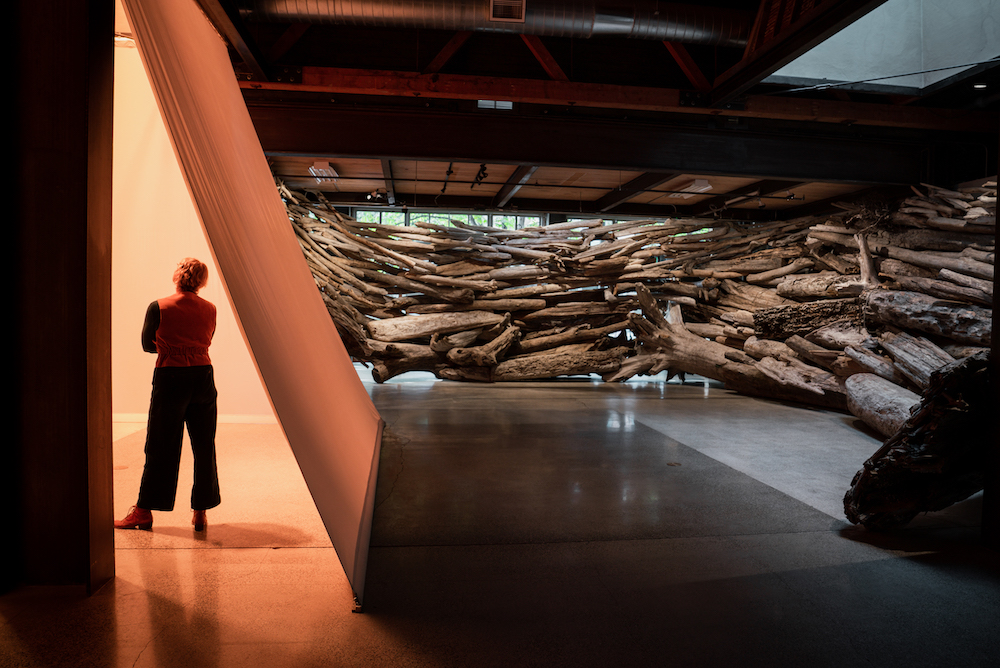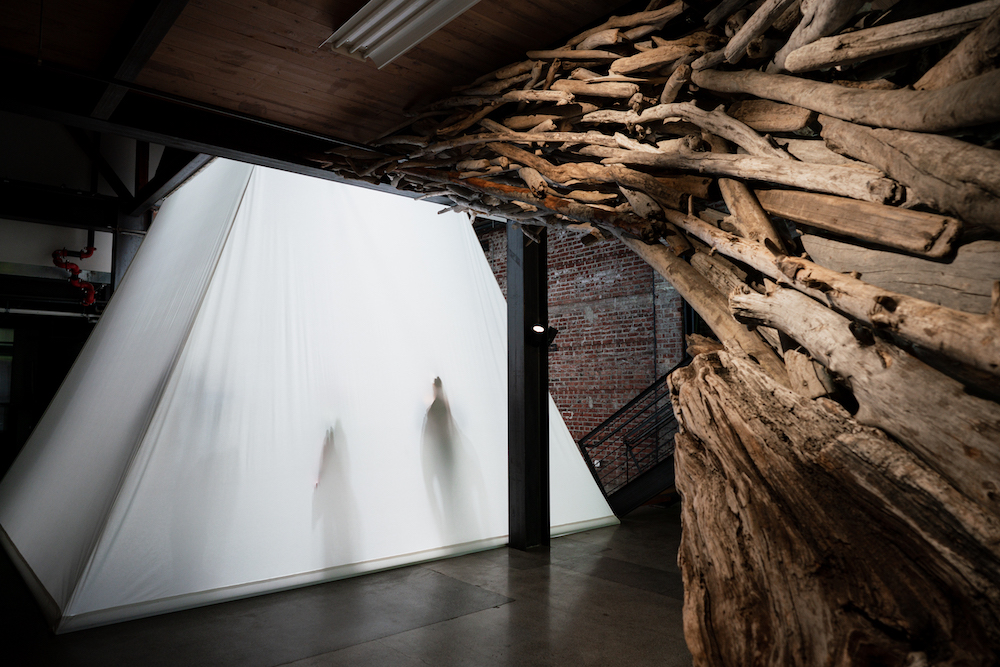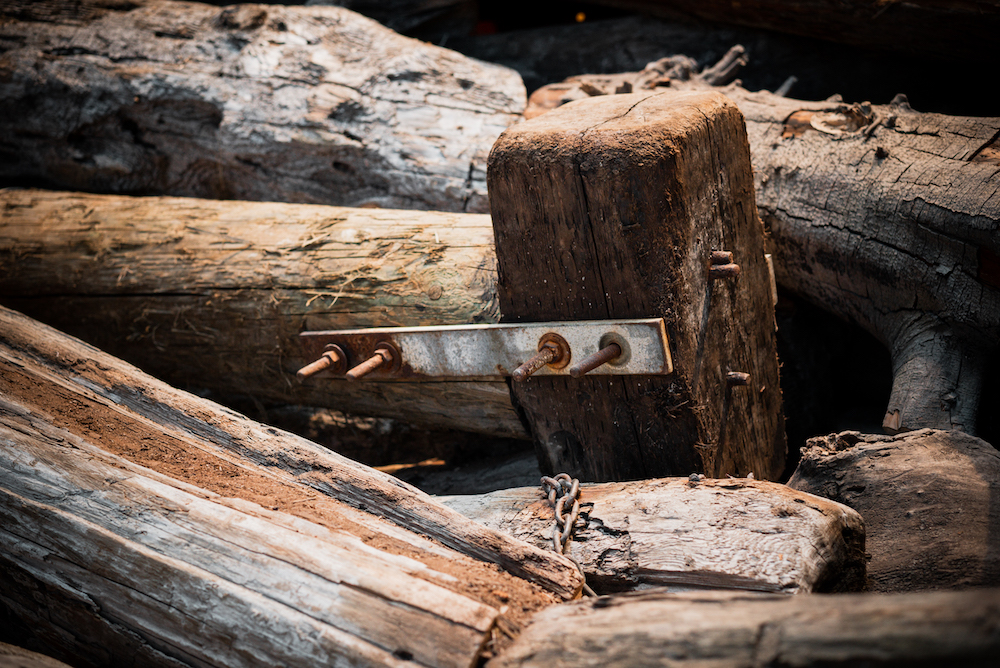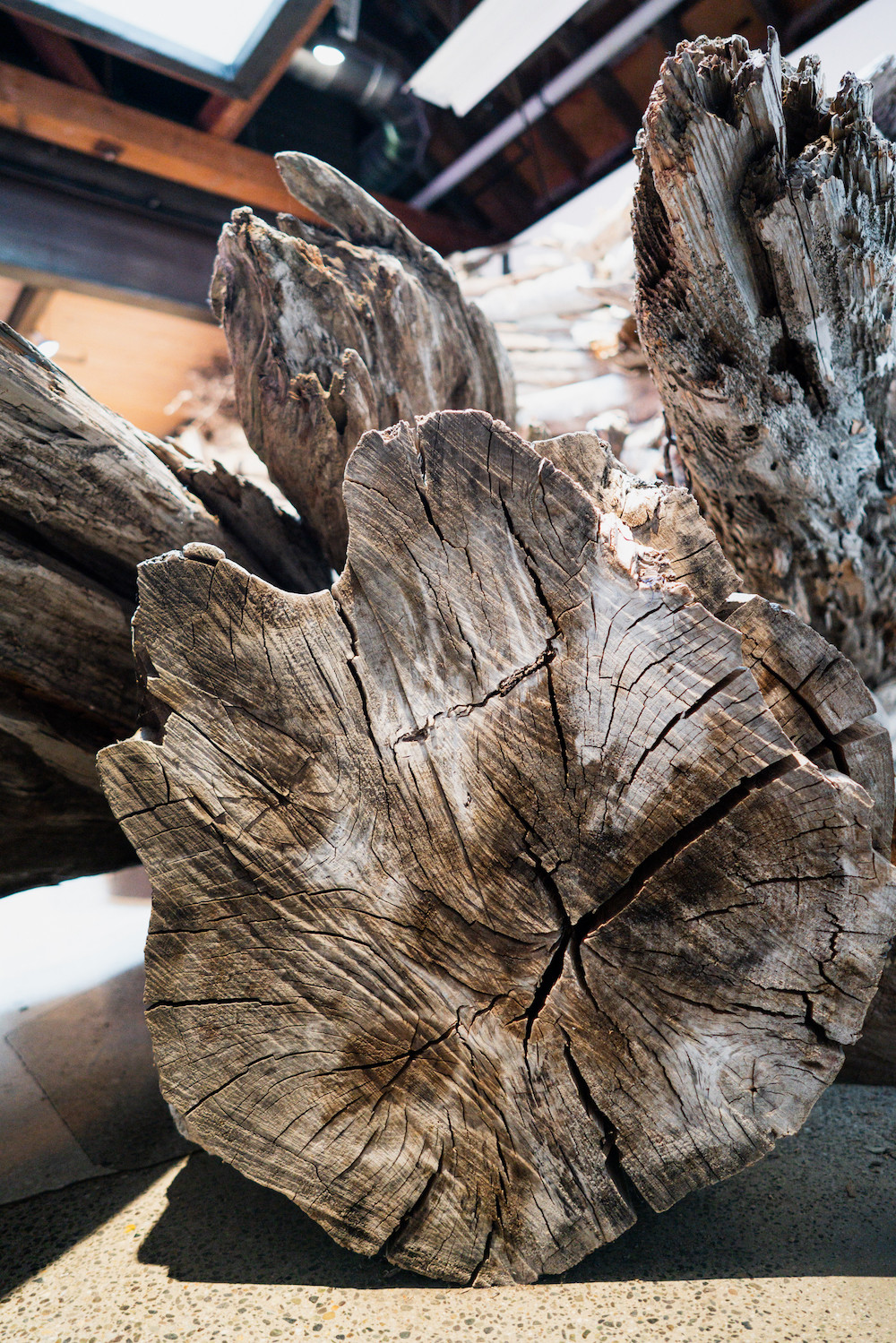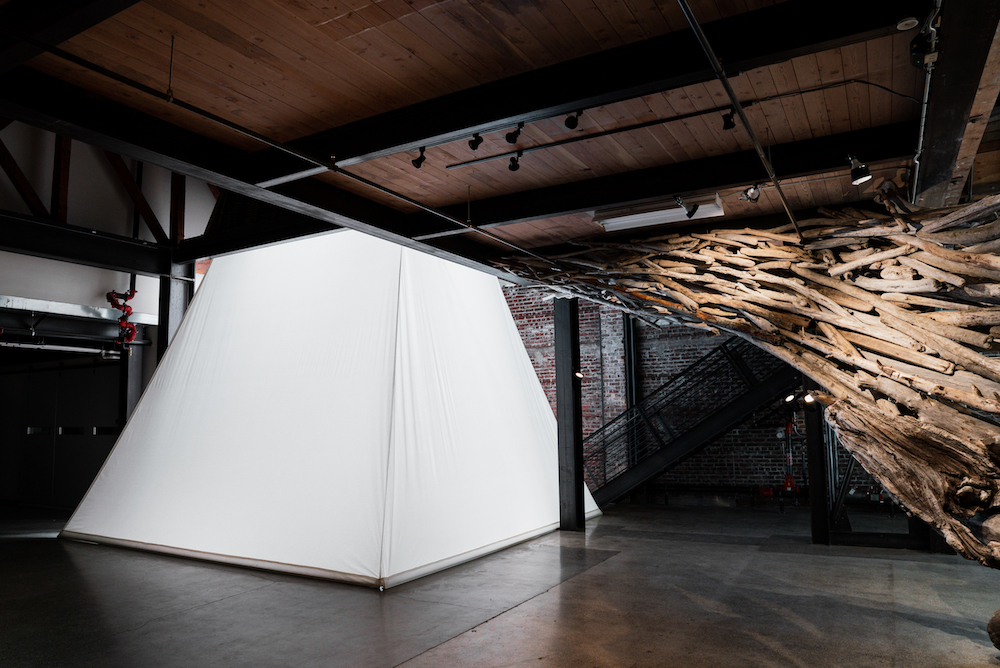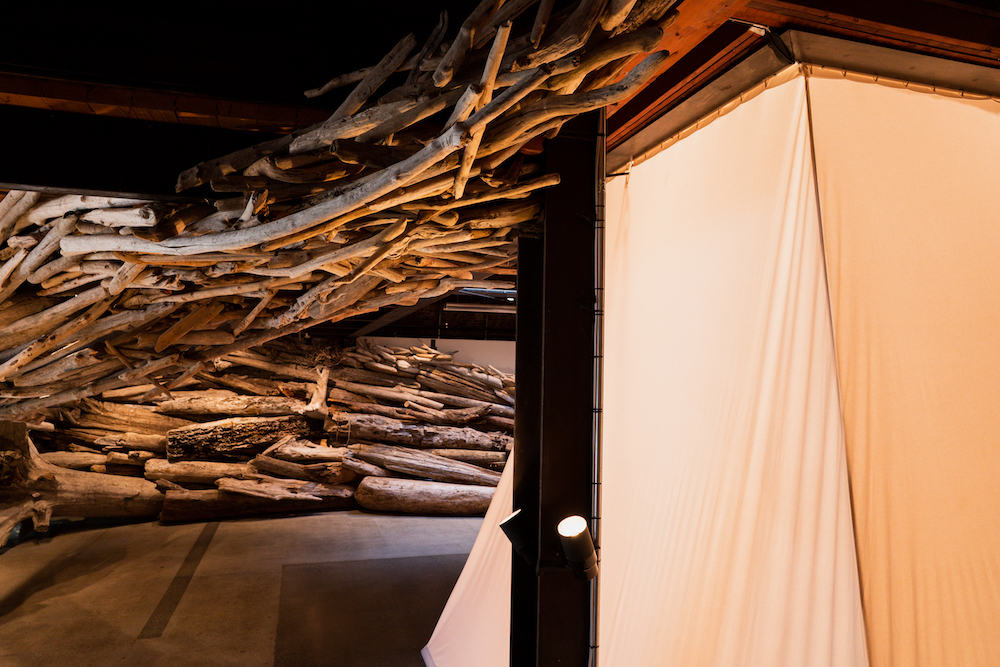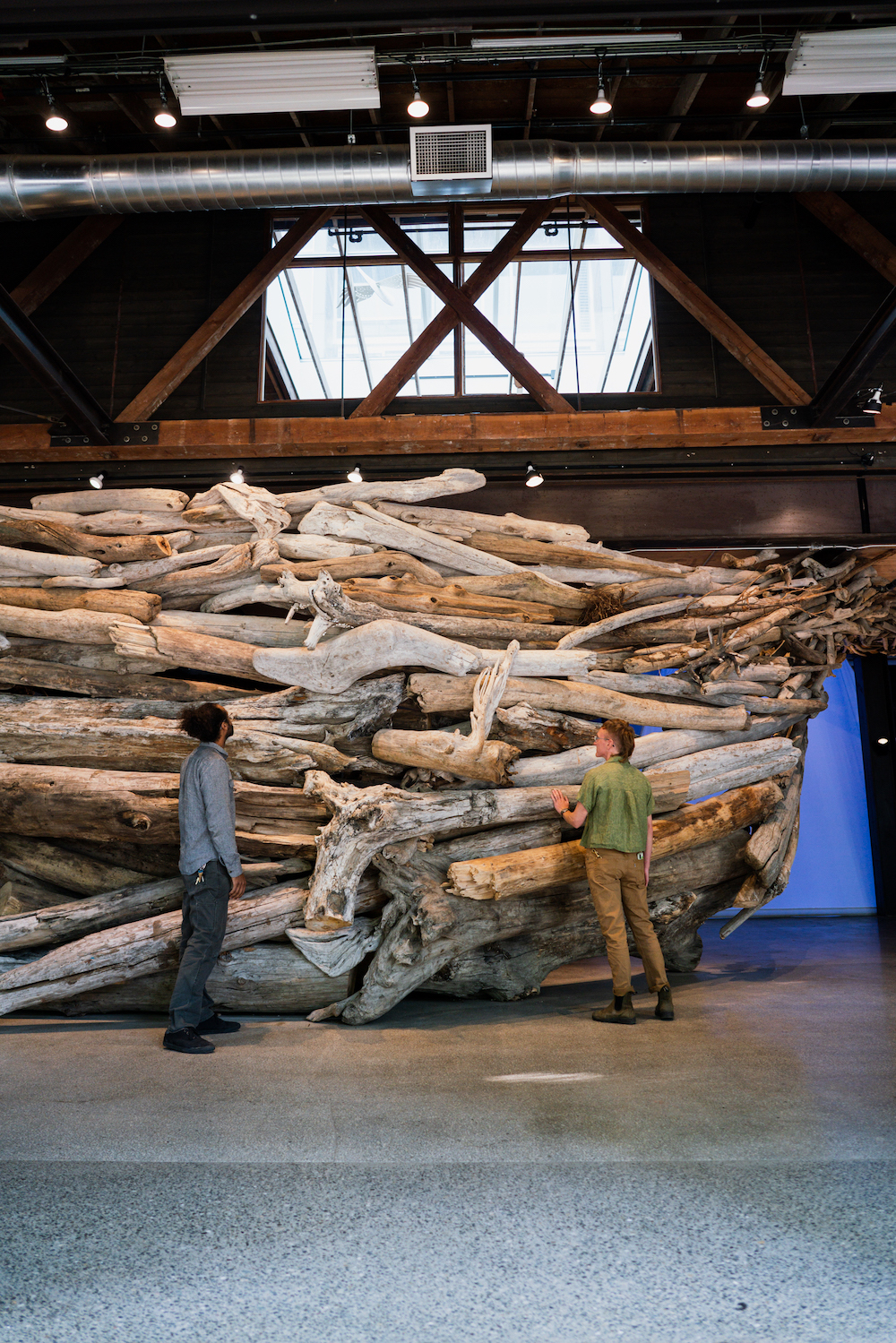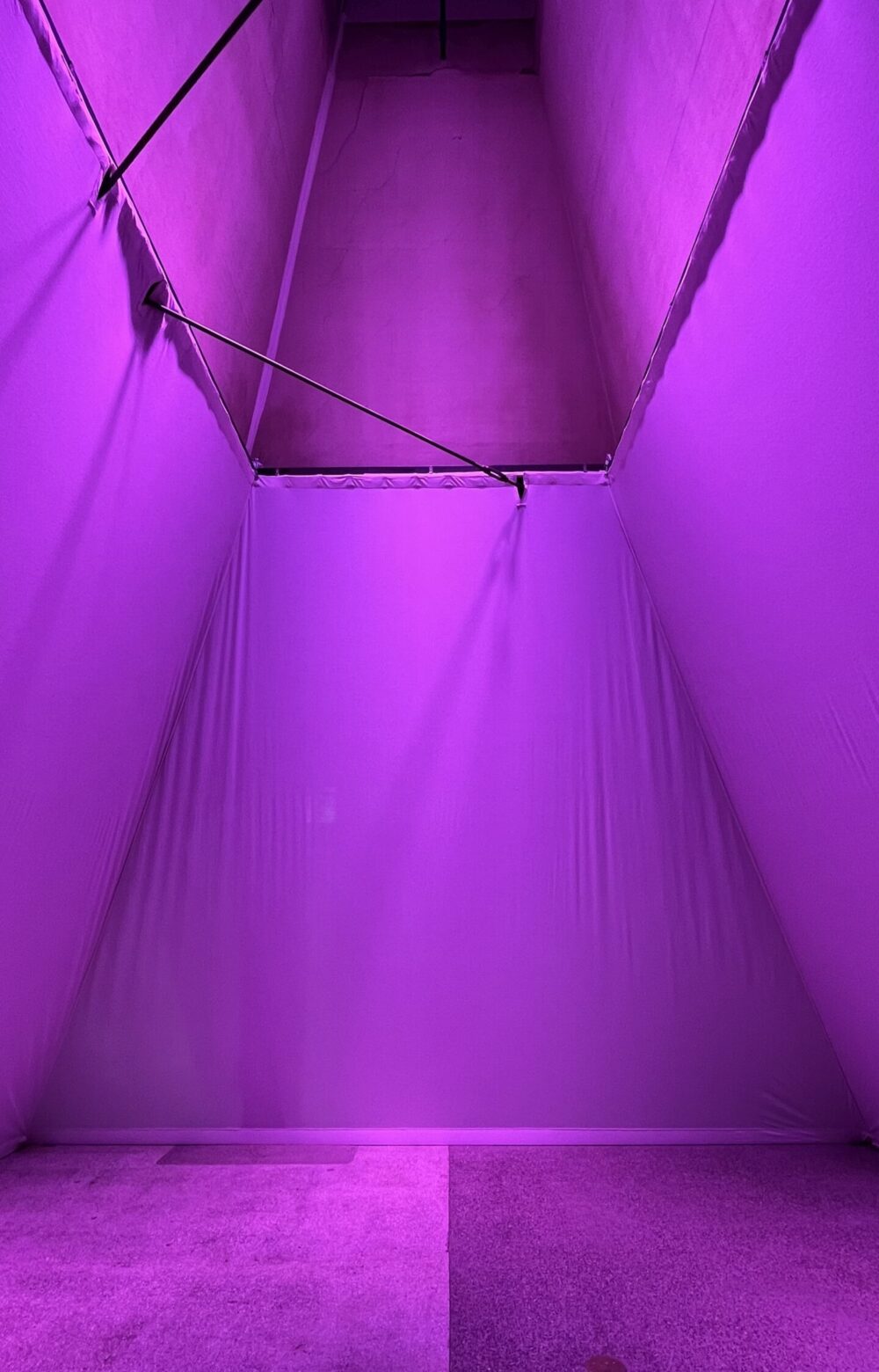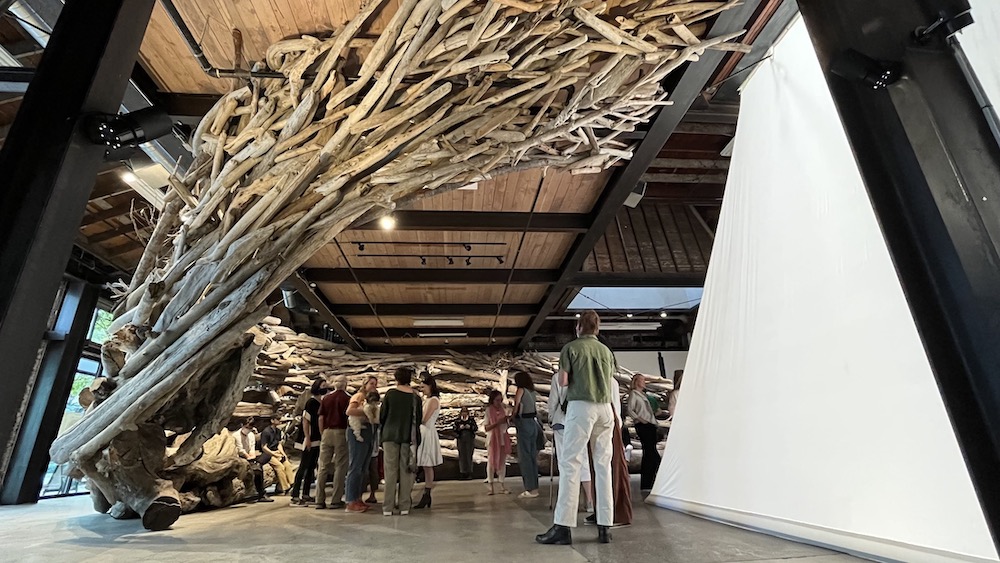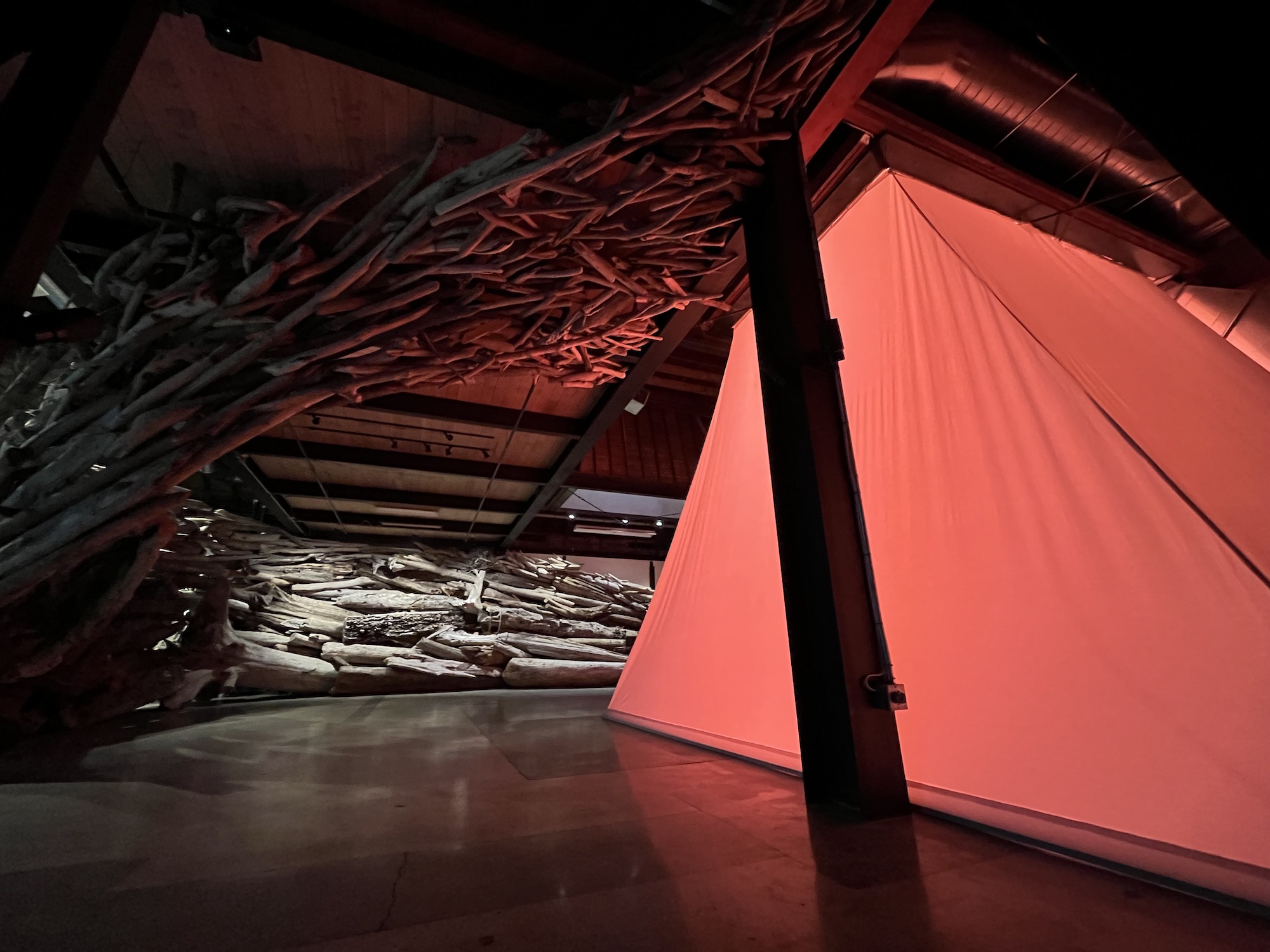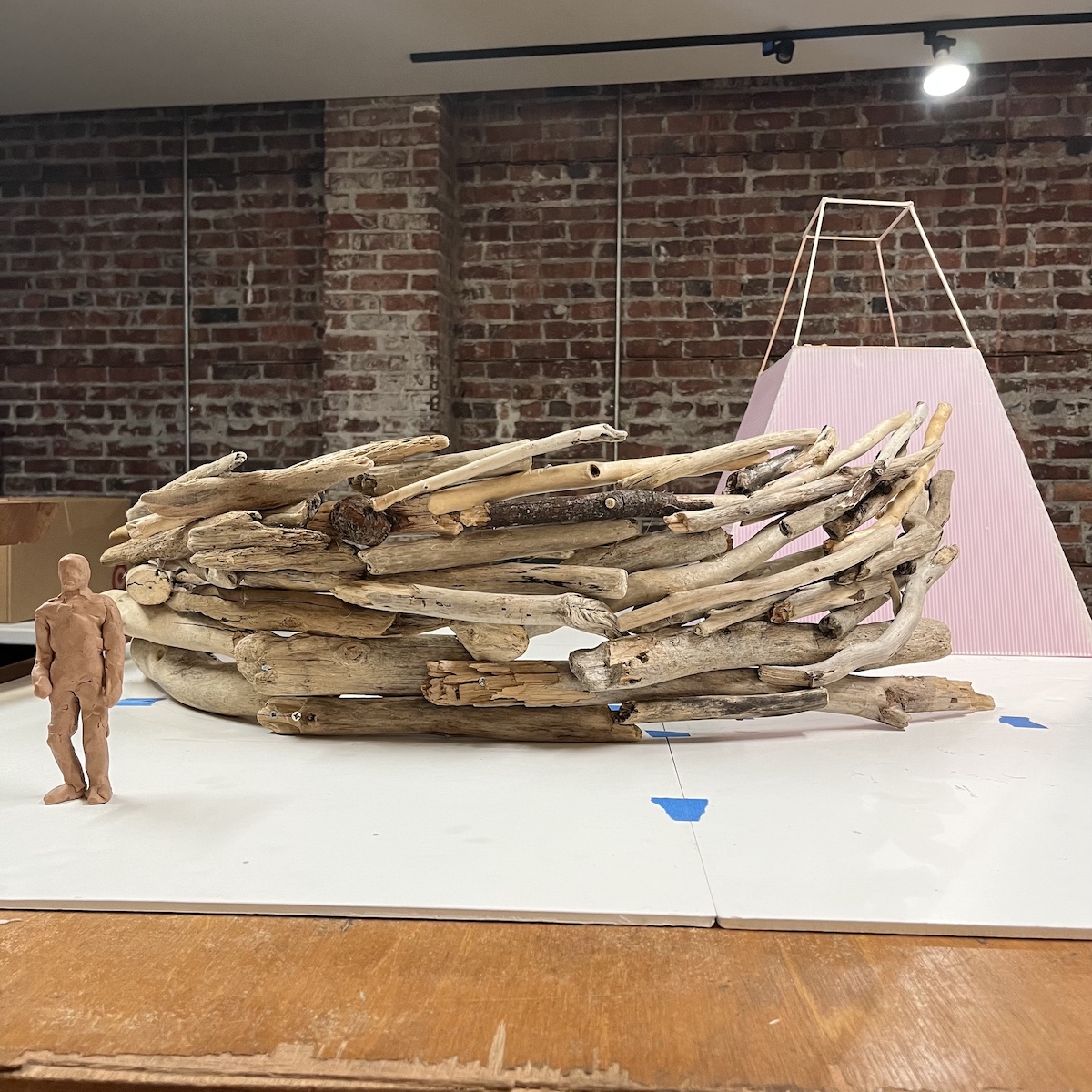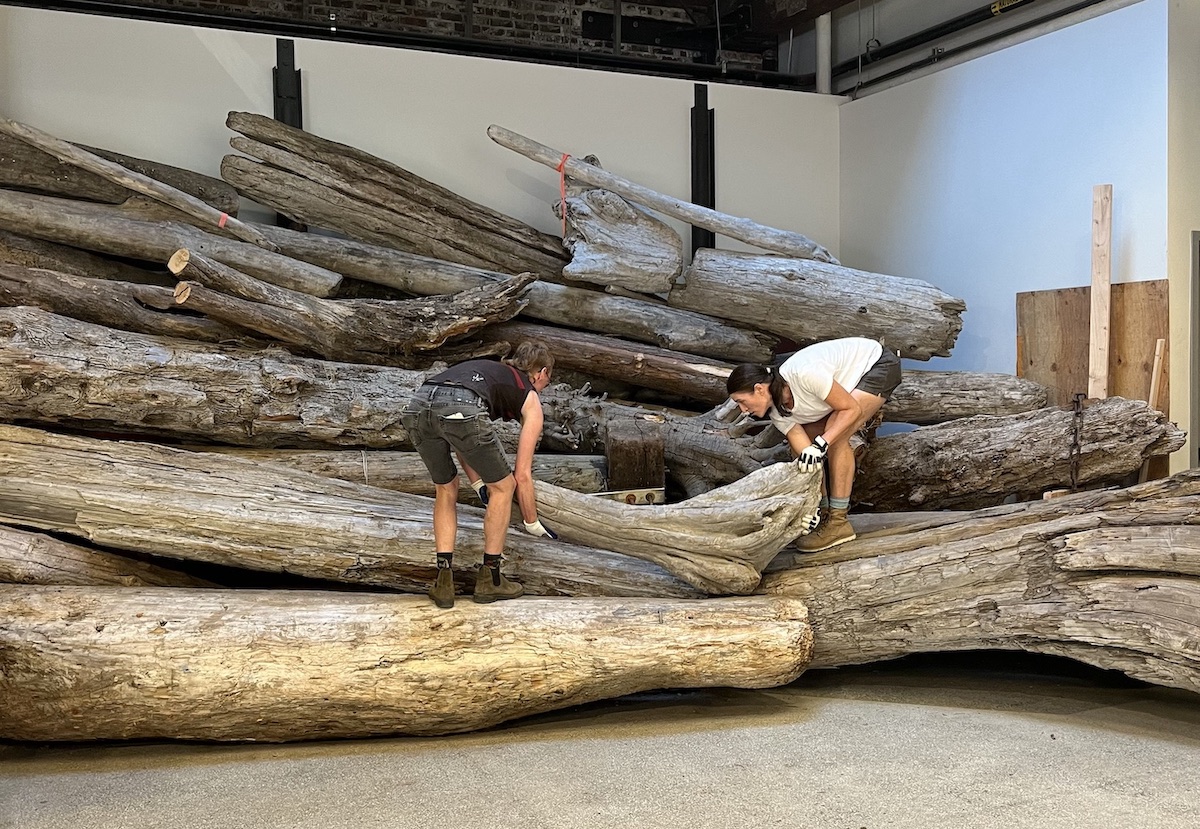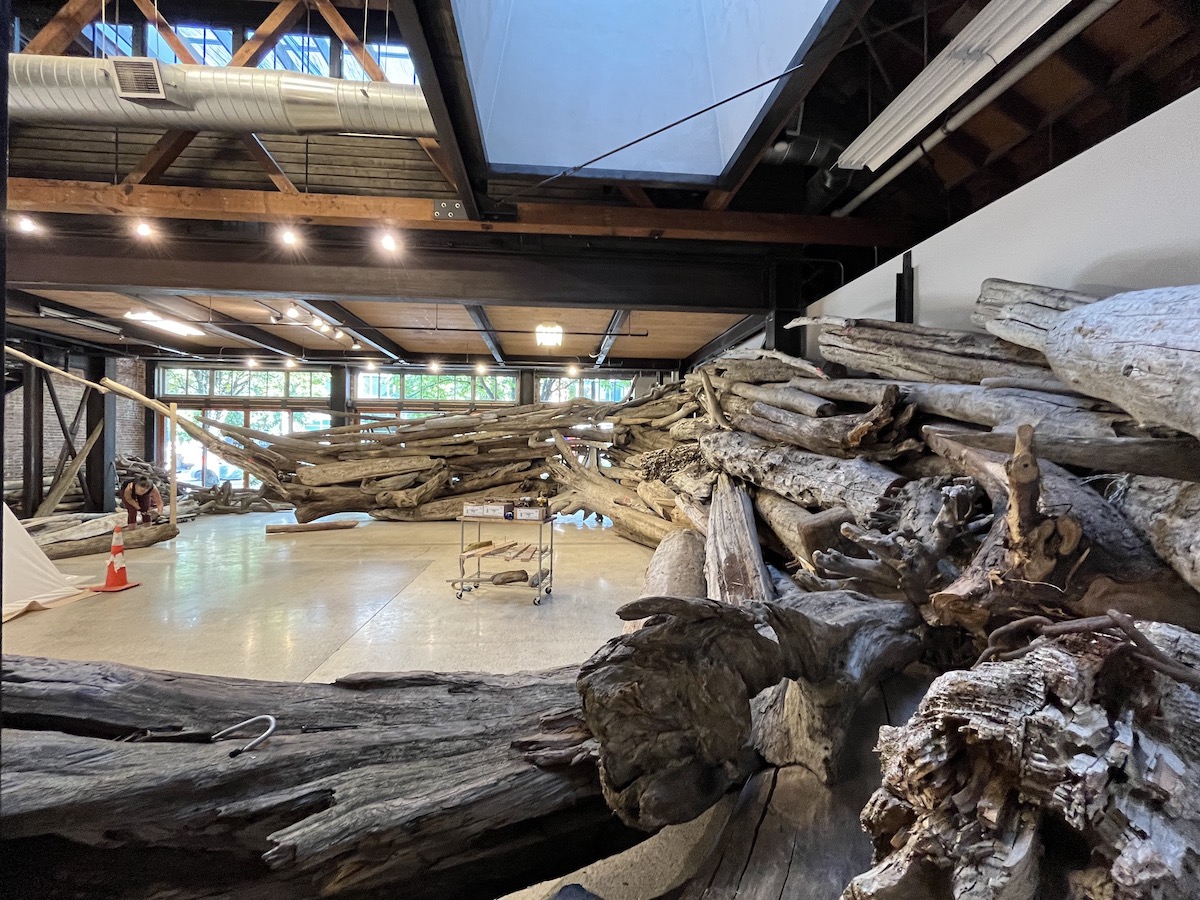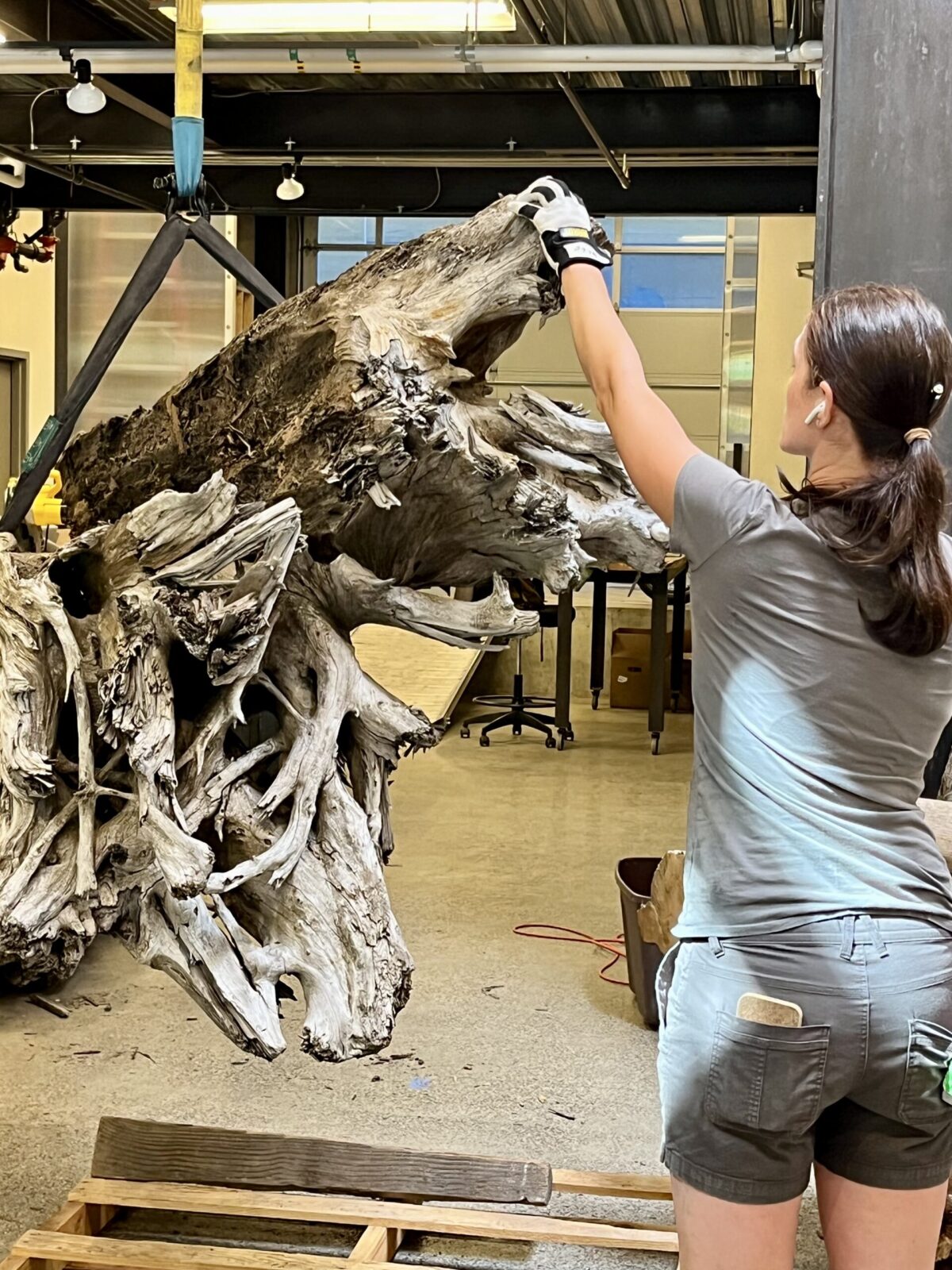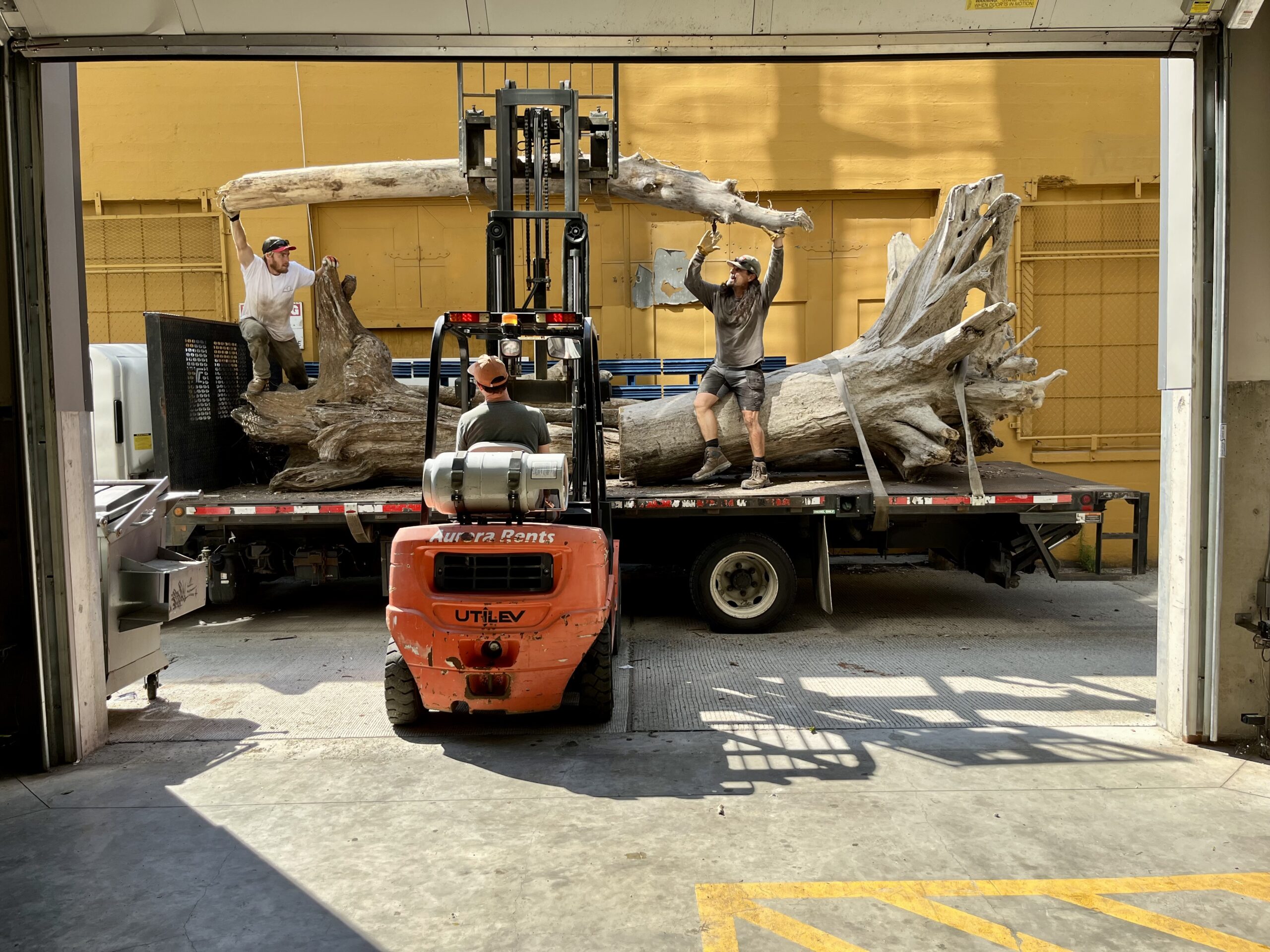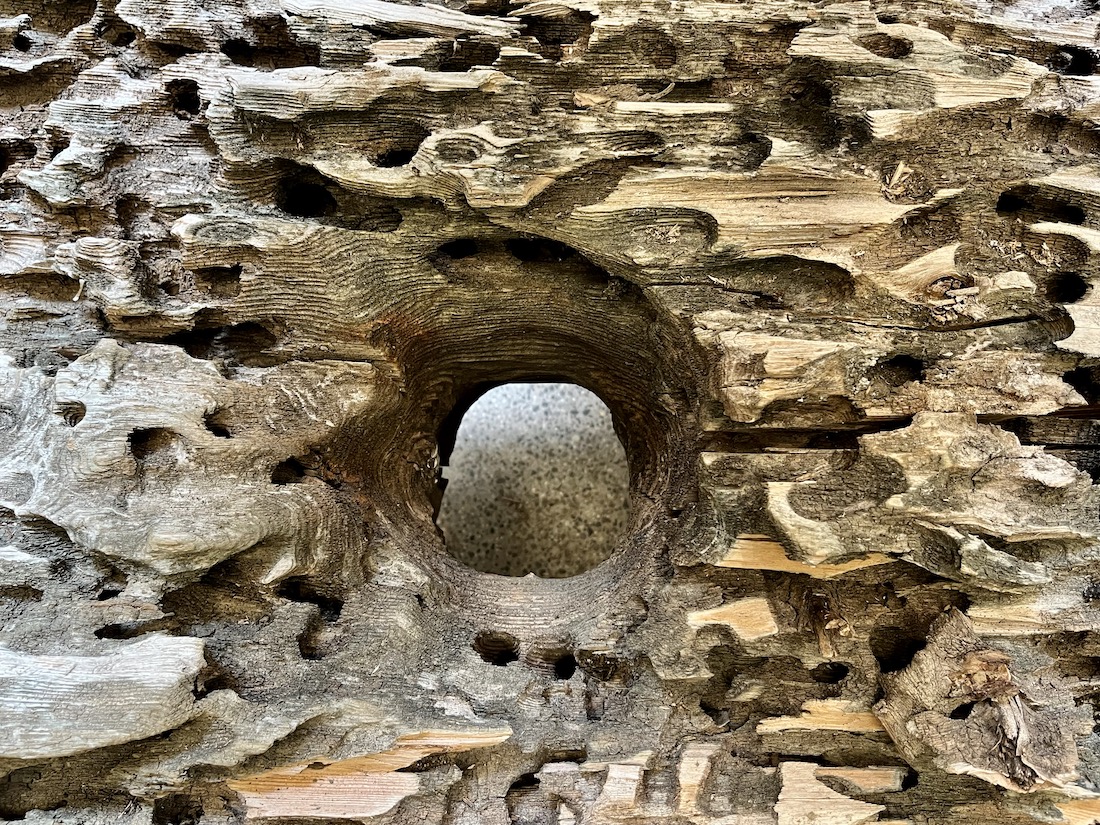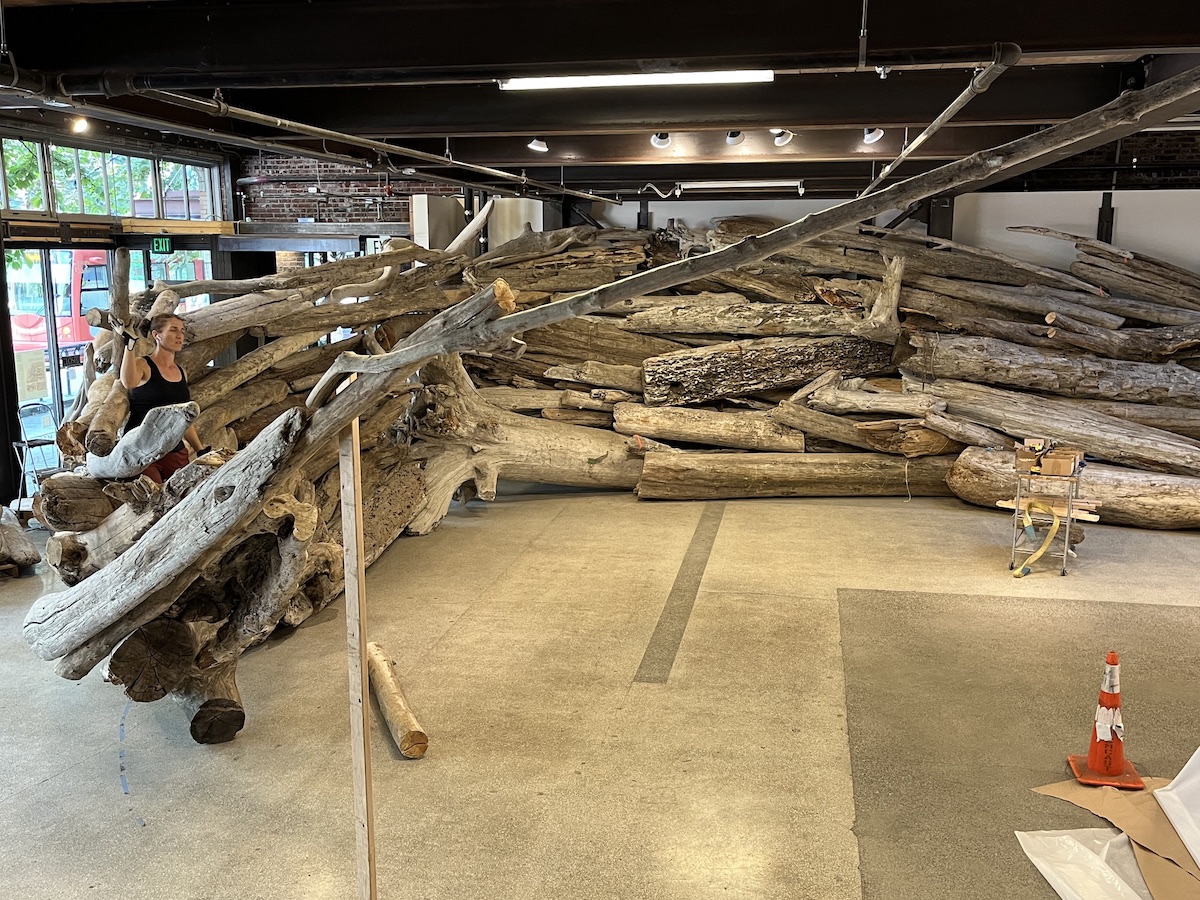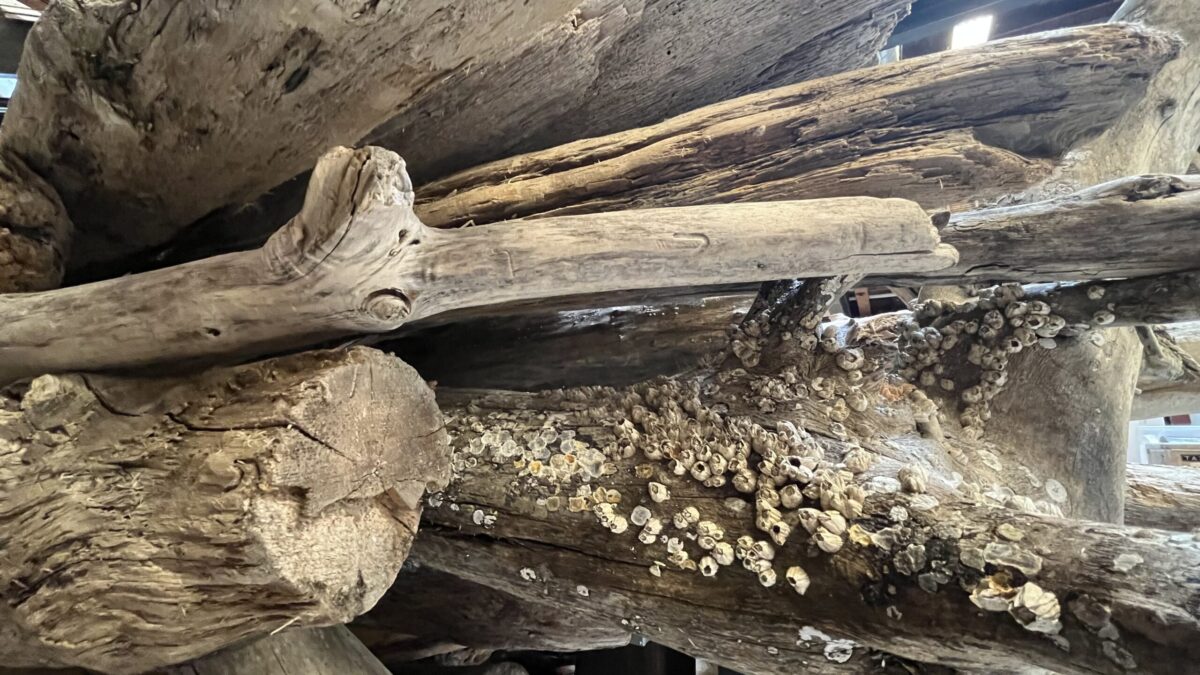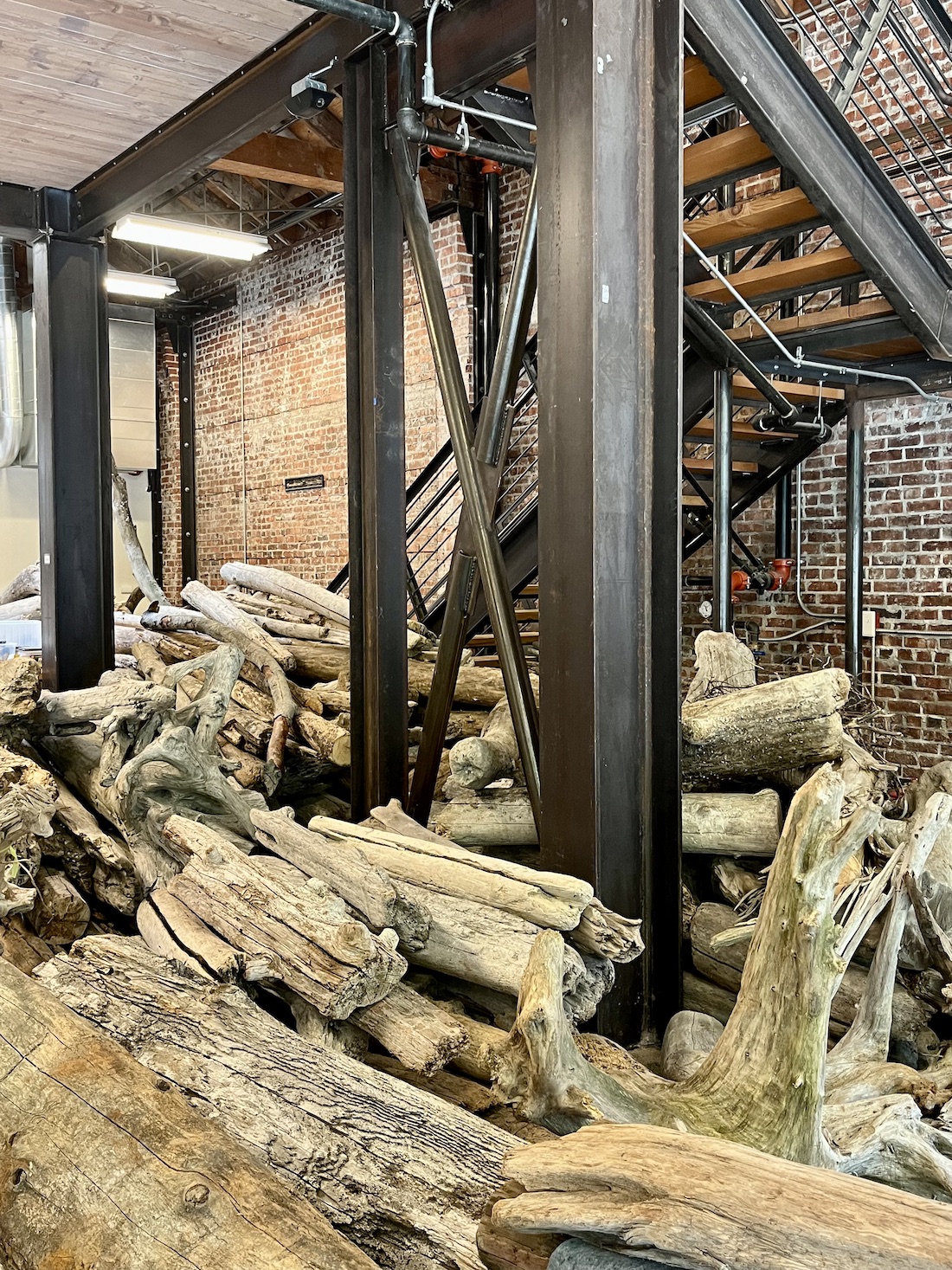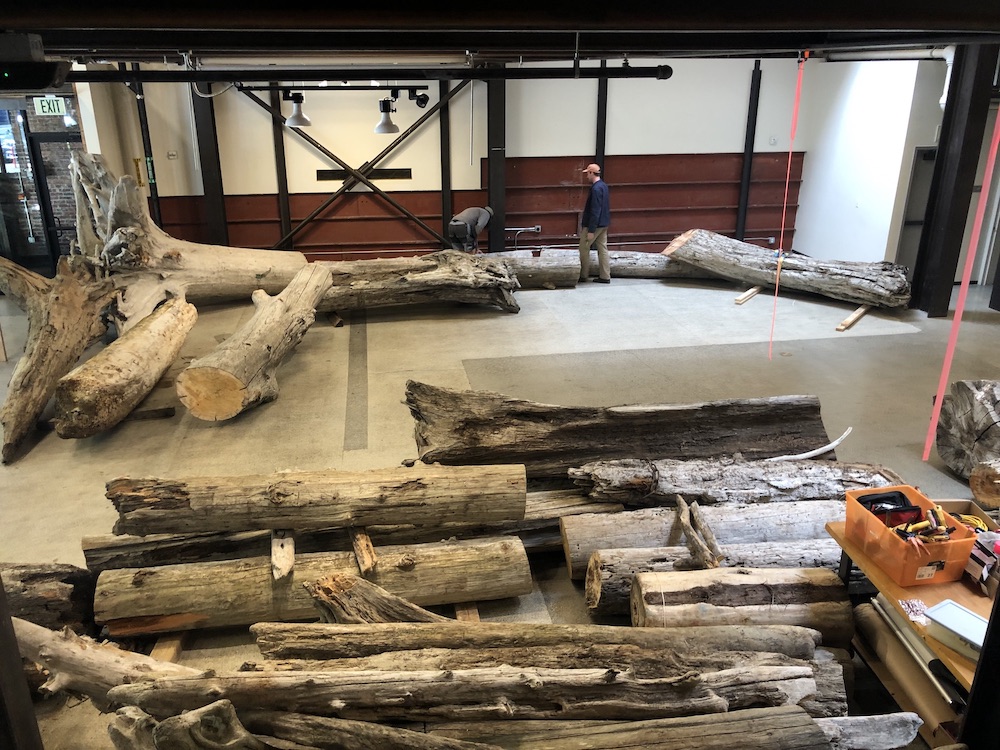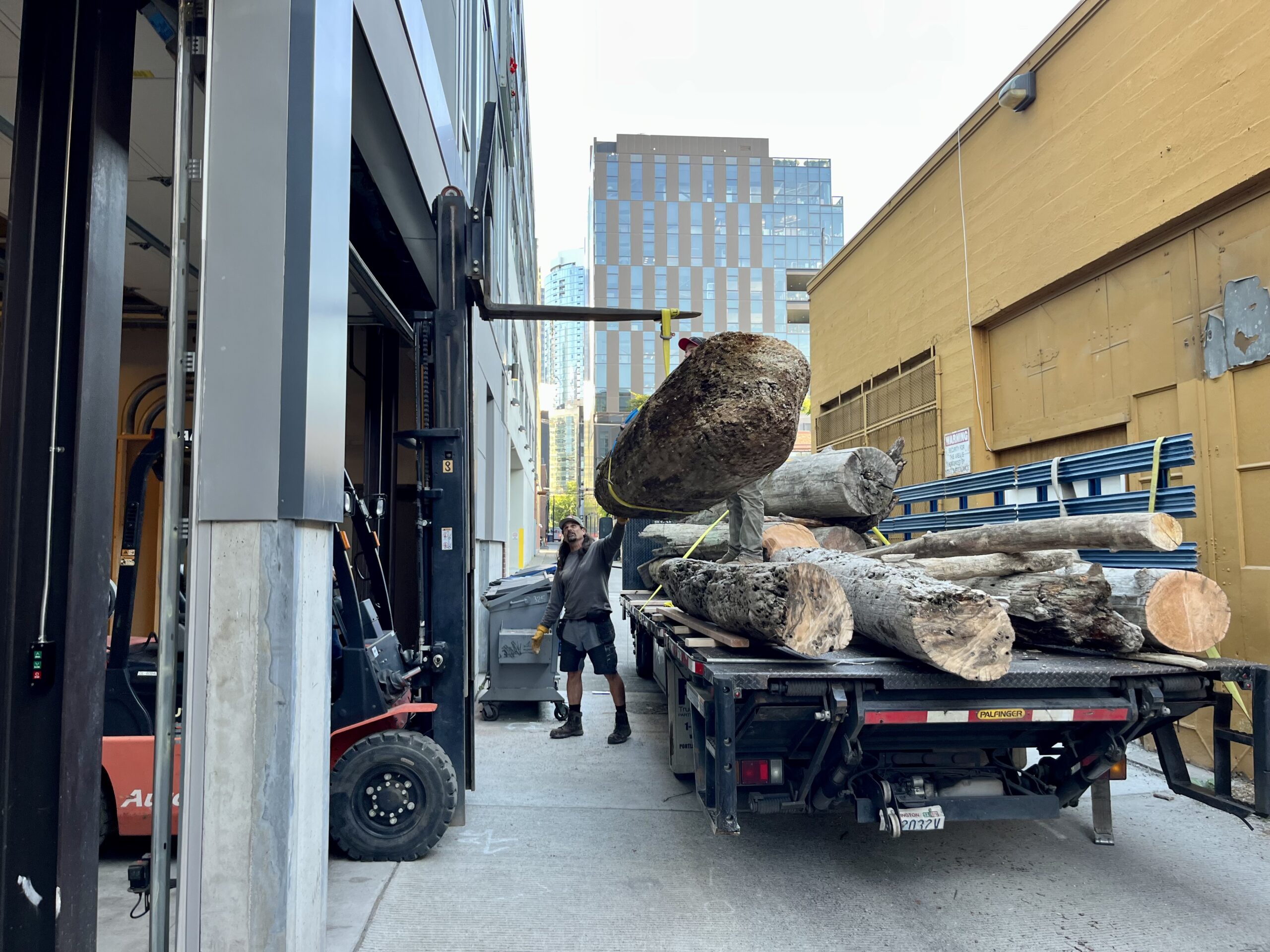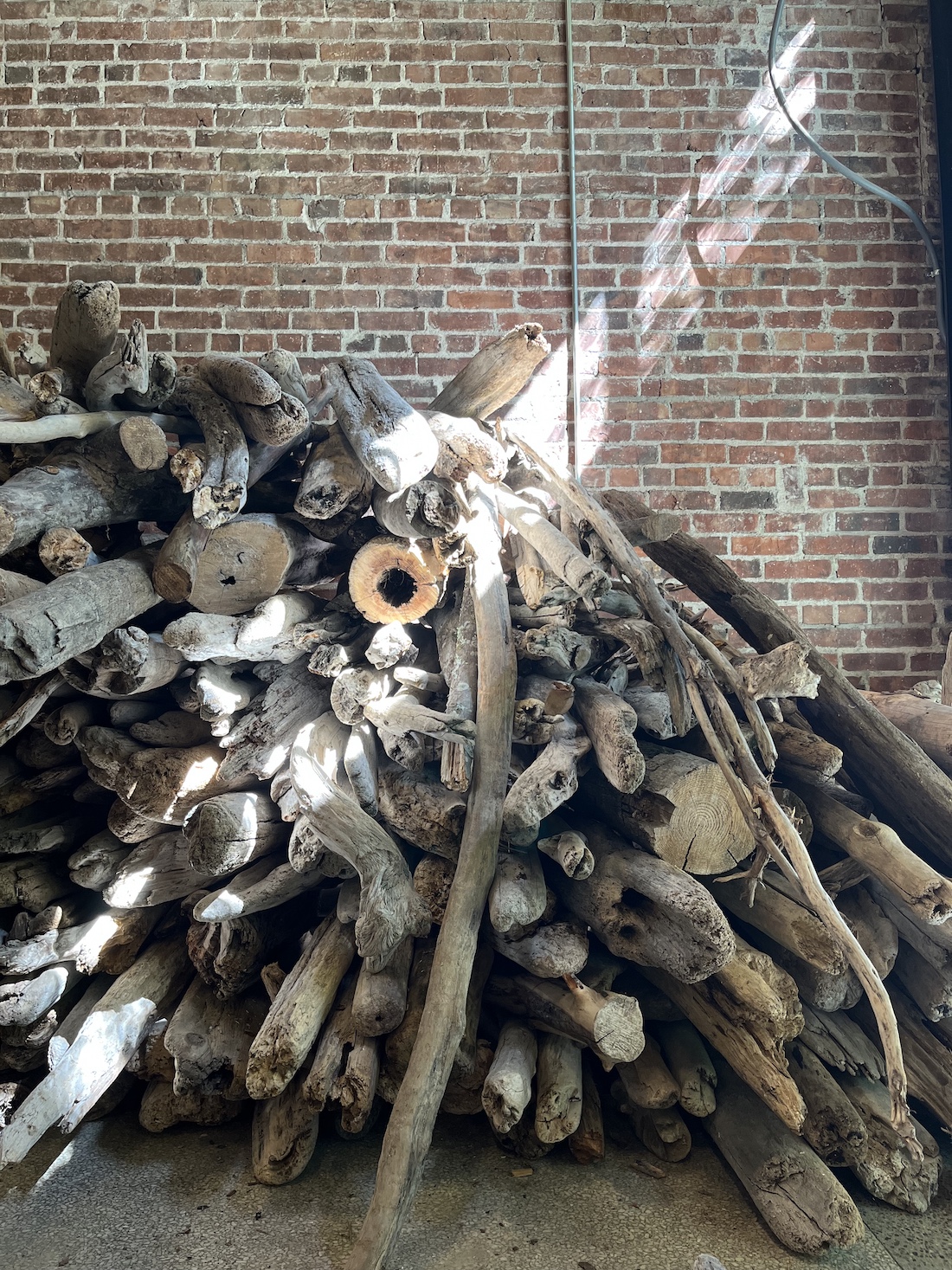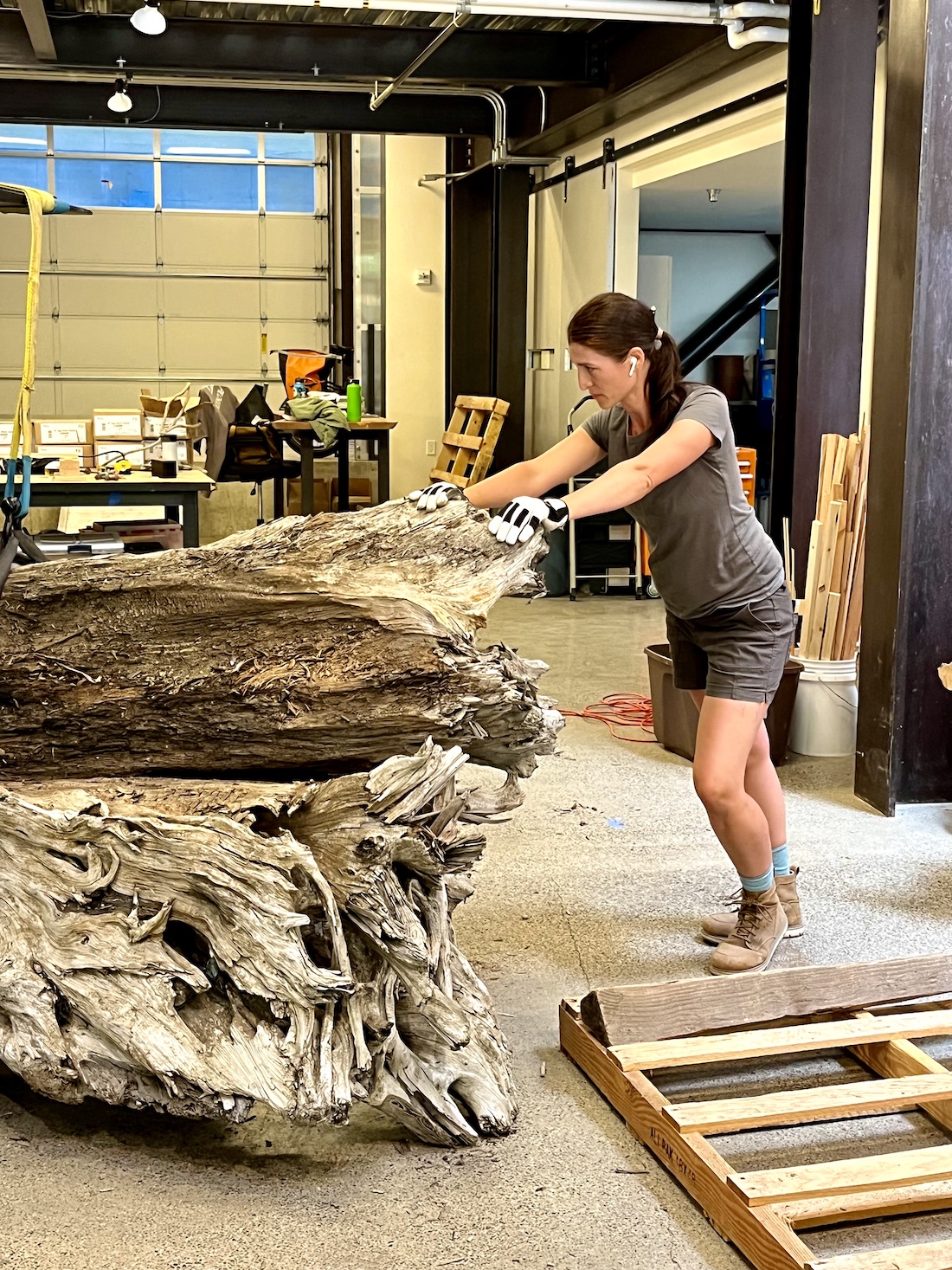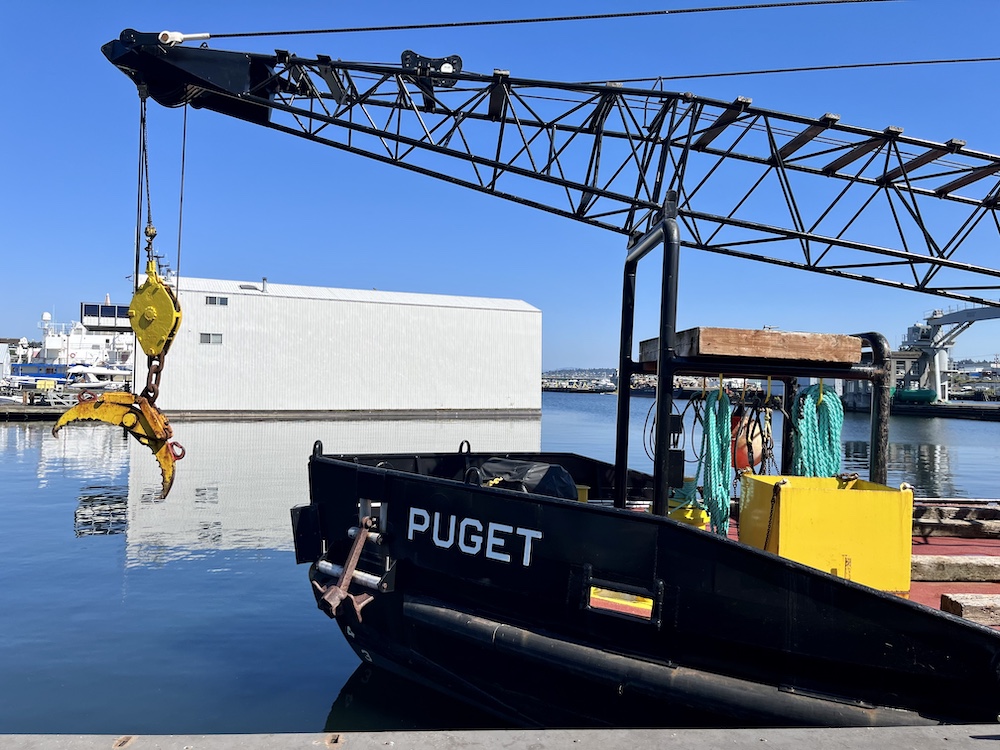August 16 – September 30
Sunday, October 2
October 4 – November 23
Follow & share on Instagram: #salvagemadart
Seattle-based artist Alison Stigora drew inspiration from materials in the natural world to create SALVAGE, a two-part, monumental sculptural installation at MadArt Studio. By combining reclaimed driftwood with light and sound compositions that reflected natural phenomena, Stigora invited visitors to engage their senses in a moment of respite.
Upon entering the studio, viewers were met by a floor-to-ceiling curving wave constructed from pieces of discarded driftwood recently recovered from Puget Sound. The logs were weighty, some nearly the size of whole trees. They combined to form a mass that appeared to be carried along a powerful current. This sculptural form acted as a spatial divider, concealing what lay audibly beyond the visual shield it created. As visitors circumvented the wood barrier and moved deeper into the space, they encountered a large, soft, translucent sculpture that glowed with the colors of a warm sunrise. Built directly off of the studio’s architectural skylight and extending to the floor, this piece created an inhabitable light well that subtly transitioned through a luminous, colorful sequence.
Both sculptural aspects included a unique audio composition made in collaboration with Rachael Fasano, an emerging Seattle-based composer. A low, resonant frequency played an earth-bound track compiled from recordings of wind, water, and equipment used in the retrieval of exhibition materials. This sound, which was felt more than it was heard, rumbled from seating built directly into the interior side of the driftwood sculpture. Emanating from the translucent light piece was a contrasting chorus of looping vocals and celestial organ sounds, paired alongside moments of stillness.
The driftwood used to construct SALVAGE was graciously donated by the Army Corps of Engineers’ M/V Puget, a recovery vessel for retrieving dangerous debris from our region’s waterways. This mission became central to Stigora’s creative intentions. By offering space for contemplation and reflection, she hoped that SALVAGE would provide visitors with an opportunity for reflection, and to note what sorts of obstructions might exist on a personal or communal level. Akin to reshaping cast-off sources of detritus into something beautiful, Stigora posed the question: how can we embrace areas of resistance and positively see them as a space for transformation?
View CatalogArtSEA: How 30 logs washed up in a South Lake Union gallery
Crosscut
August 25, 2022
Discover SLU
August 26, 2022
7 best bets for visual arts in the Seattle area in fall 2022
Seattle Times
September 6, 2022
Stranger Suggests: One Really Great Thing to Do Every Day of the Week
The Stranger
September 28, 2022
